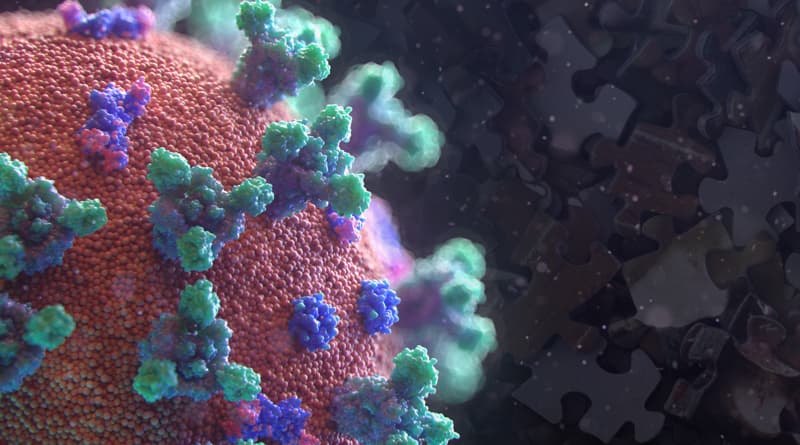
Drug that Enhances Metacognitive Performance May Help Treat Symptoms of OCD and Schizophrenia
Every so often, life throws a make-or-break decision your way; and sometimes, it can be difficult to know whether you made the right one. However, according to a recent study, a drug known as propranolol may be able to boost your confidence by blocking the rush of noradrenaline that occurs throughout your body. This new advancement could possibly lead to the development of cutting-edge treatments for schizophrenia and obsessive-compulsive disorder (OCD).
Our ability to monitor and analyze our own cognitive processes is governed by what is recognized as metacognition. As confidence can play an integral role in how we behave, it can in turn affect the outcome of situations. Therefore, having low confidence can negatively affect mental health conditions. “We see many symptoms associated with poor metacognitive judgement in schizophrenia and OCD,” says Tobias Hauser at University College London (UCL).
“In OCD, for instance, people may constantly go and check whether they’ve closed a door. They are poor at judging whether they have done something correctly or not,” he further explains.
Confidence Analysis
What is known of the neural framework of metacognition may be limited. However, it presumably involves the prefrontal cortex as well as the hippocampus; two regions of the brain that are regulated by the chemicals, dopamine and noradrenaline.
Because both chemicals contribute to the management of arousal and higher-order cognition, it is generally deduced that the dysregulation of either chemical can give way to countless manifestations of psychological illnesses.
To evaluate, Hauser and his team performed a double-blind, between-subjects, placebo controlled, study, which consisted of three groups of 20 subjects; matched for gender, age, affect, and intellectual abilities.
The dopamine group received 400 mg of amisulpride (selective D2/3 antagonist) 110 minutes before they were required to perform a metacognition task, and subsequently received an additional placebo 30 minutes after the active drug was administered
Whereas, the noradrenaline group received the placebo 110 minutes before the task, and were administered the propranolol (non-selective β-adrenoceptor antagonist) 30 minutes after the placebo was taken.
Lastly, the control group was administered the placebo at the same time points of the first two groups.
Eighty minutes after being administered the second drug, the subjects were required to perform a task in which they were expected to determine whether the overall movement of a rush of erratically moving dots veered to the left or to the right.
Since the complexity of the task was unremittingly adjusted, the subjects could attain the correct answer about 70% of the time; however, they remained unaware of this. While performing the task, each subject was asked how confident they were of their assessments.
Missing Information
A comparison of the subjects’ self-assessed confidence and their actual performance revealed the effect that each drug had. The drug reducing the noradrenaline enhanced metacognitive insight, allowing subjects to become more aware of their performance, while leaving the accuracy of their decisions unaltered.
As a result, subjects were more inclined to express that they had been correct when they in fact were; and in like fashion, were able to recognize their mistake had they been wrong. Neither the placebo, nor the dopamine inhibiting drug had any effect whatsoever.
Hauser believes that noradrenaline is released when unexpected uncertainty arises, which can lead to making the wrong decision. “We think that this burst of noradrenaline when you make an error erases the information about a task that you recently stored in your memory,” says Hauser.
Furthermore, it is possible that a subject who either failed to make the right decision, or who struggled to make the right decision, may have their system reset; which could potentially render them incapable of obtaining sufficient information to later evaluate their decision.
“You are no longer able to properly judge how well you did in the task because you’re judging your decision using less evidence,” explains Hauser.
Enhanced Awareness
By blocking noradrenaline, individuals seem more capable of assessing their confidence in action. The drug used to block noradrenaline, propranolol, is currently being used as treatment for hypertension; however, it could perhaps be beneficial for treating symptoms seen in those suffering from OCD and schizophrenia.
Those without the conditions may be able to benefit from reducing the amount of noradrenaline in their systems as well.
“There’s quite some variability in metacognition,” says Hauser. “It is likely to have an effect in real life decision-making. Whether you trust what you’re writing, whether you’re confident in what you’re saying – all our actions involve metacognition.”
.
This piece is based on an article by Helen Thomson for NewScientist.com, which can be seen here.
Other Resources:
https://elifesciences.org/articles/24901
https://www.merriam-webster.com/dictionary/metacognition
http://v1.tobiashauser.ch/about/
Megan Baksh received her Bachelor of Science in Exercise Science at Nova Southeastern University in May of 2016, and is currently pursuing an education in the field of psychology.




